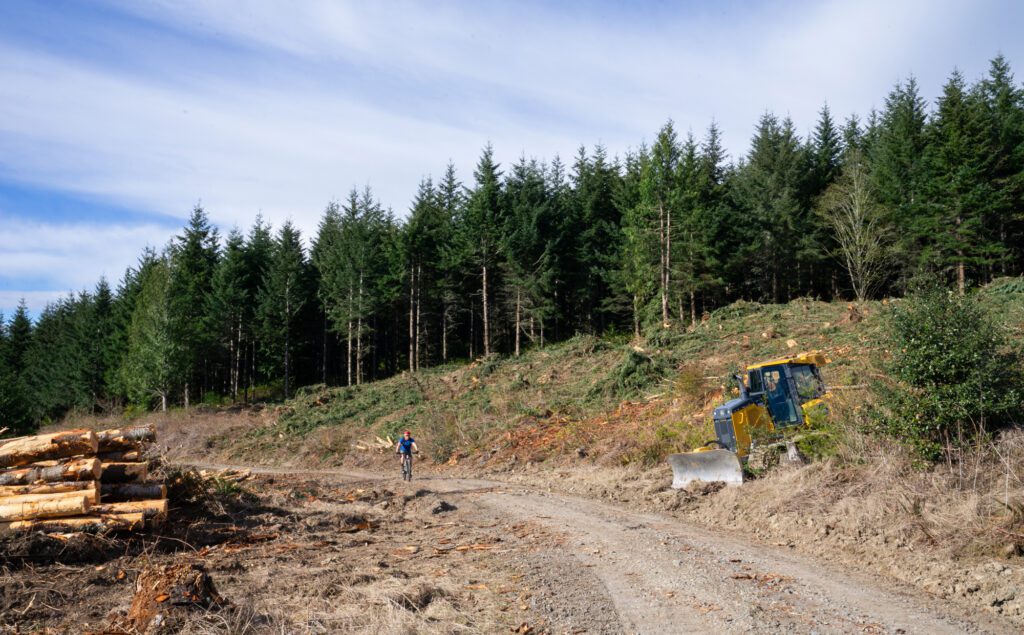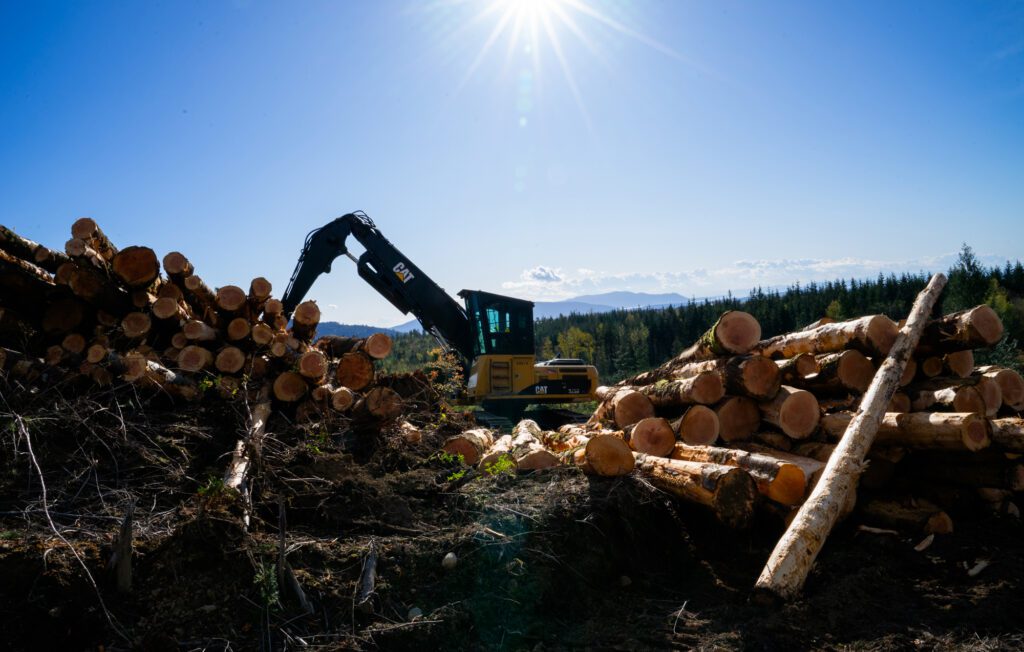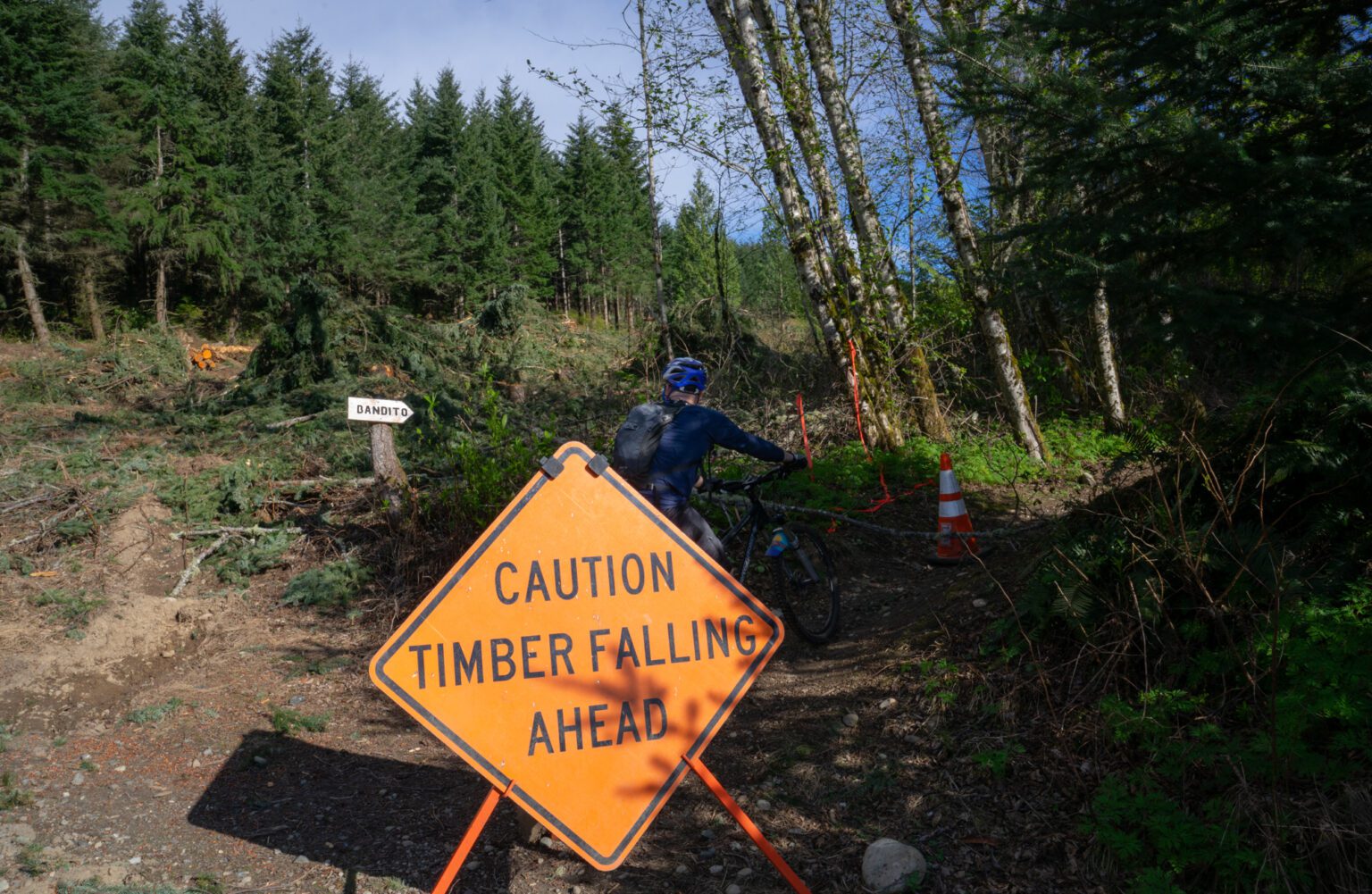Galbraith Mountain’s northside trail users encountered a disruption to recreation this month, as two companies that own a majority of the land began logging large sections of forest containing popular legacy trails such as SST, Orient Express, Tough Love and Air Chair.
Some logging at the popular site is implicit in the “working mountain” designation, reflecting a history of combined public/private use of forest land that also has become a regional trail cycling mecca used by hikers and horseback riders.
Most active logging is within the boundaries of Access Road 1200 on the northside and Access Road 2000 to the southeast. Logging by Janicki Logging Co. and Galbraith Tree Farm began April 2 and is expected to conclude in early June after eight weeks of cutting, harvesting and cleaning.
It is unclear if trails impacted by the logging will be cleaned and ready for use until after logging equipment has left the mountain. Eric Brown, executive director of the Whatcom Mountain Bike Coalition (WMBC), regularly updates the logger’s movements as well as trail closures and reopenings on social media.

Trails that are logged over often take ample time and volunteer hours to be recovered, requiring a complete rebuild of once-popular hiking and biking routes. While popular routes are impacted, northside users can still ride and hike on trails such as Bob’s, Boot Dryer and the Cedar Dust jumps. These trails offer many of the same features and lengths that currently logged trails provide, without being impacted by equipment on the mountain.
“I’m saddened by the loss of trees and trails on the mountain, and I’m not looking forward to how long it will take to rebuild,” said Brent Hartwig, a regular trail user. “But I’m excited to see the new trails the WMBC comes up with, and understand it’s part of living with a working mountain.”
Galbraith Mountain is well known for its 100-plus miles of trails. Popular non-motorized trails have sprung up on the mountain since the 1970s, and users now benefit from the thousands of volunteer hours the WMBC devotes to the mountain, along with the organization’s relationship with private land owners and management groups.
Galbraith is just one part of an important recreation community in Whatcom County. An economic report in 2015 reported that local recreation accounted for $705 million in economic revenue and supported over 6,500 jobs. The study did not specify the amount that Galbraith Mountain contributes to that figure.
Janicki Logging and Galbraith Tree Farm own a majority of the approximately 3,000-acre protected land inside the 4,040 acres of designated forestland on Galbraith Mountain. Though Janicki and the WMBC have cooperated since 2013 to allow trail users to recreate freely, the Galbraith Tree Farm land purchase in 2017 was seen as a commitment to cementing the area’s hiking, biking and horseback riding trails.

In 2018, the city made it official by paying Galbraith Tree Farm $3 million to guarantee the right to recreate on the working mountain “in perpetuity.”
As Janicki notes, Galbraith Tree Farm is treated differently from other regional tree stands. Instead of traditional clear-cutting, the mountain is being farmed at a rate of 50 acres per year. Selective cutting practices are also employed, allowing a biodiverse selection of trees to grow within cutting stands.
However, the working mountain does not have a clear path to further protected status, and the Galbraith brothers cut the last of the mountain’s old growth in the 1930s.
In 2020, a large timber thinning effort was conducted on the mountain to reduce wildfire risk. This coincided with efforts to reduce the amount of laminated root rot that has taken hold on small areas.
Much of the impact of both these efforts can be seen from satellite imagery showing “mini clear cuts” and rarely impact recreational trails. This high level of forest management prevents disease from spreading as it has at Vancouver’s Stanley Park, where the western hemlock looper moth has killed more than 30% of the park’s 600,000-plus trees.
Trail users are asked to follow closure notices until it is safe to re-enter. Northside trail users are encouraged to follow the WMBC’s social media channels to stay informed about logging cuts and avoid impacted trails until further notice.
Casey Griesemer writes monthly. Email: caseyg2014@gmail.com.




